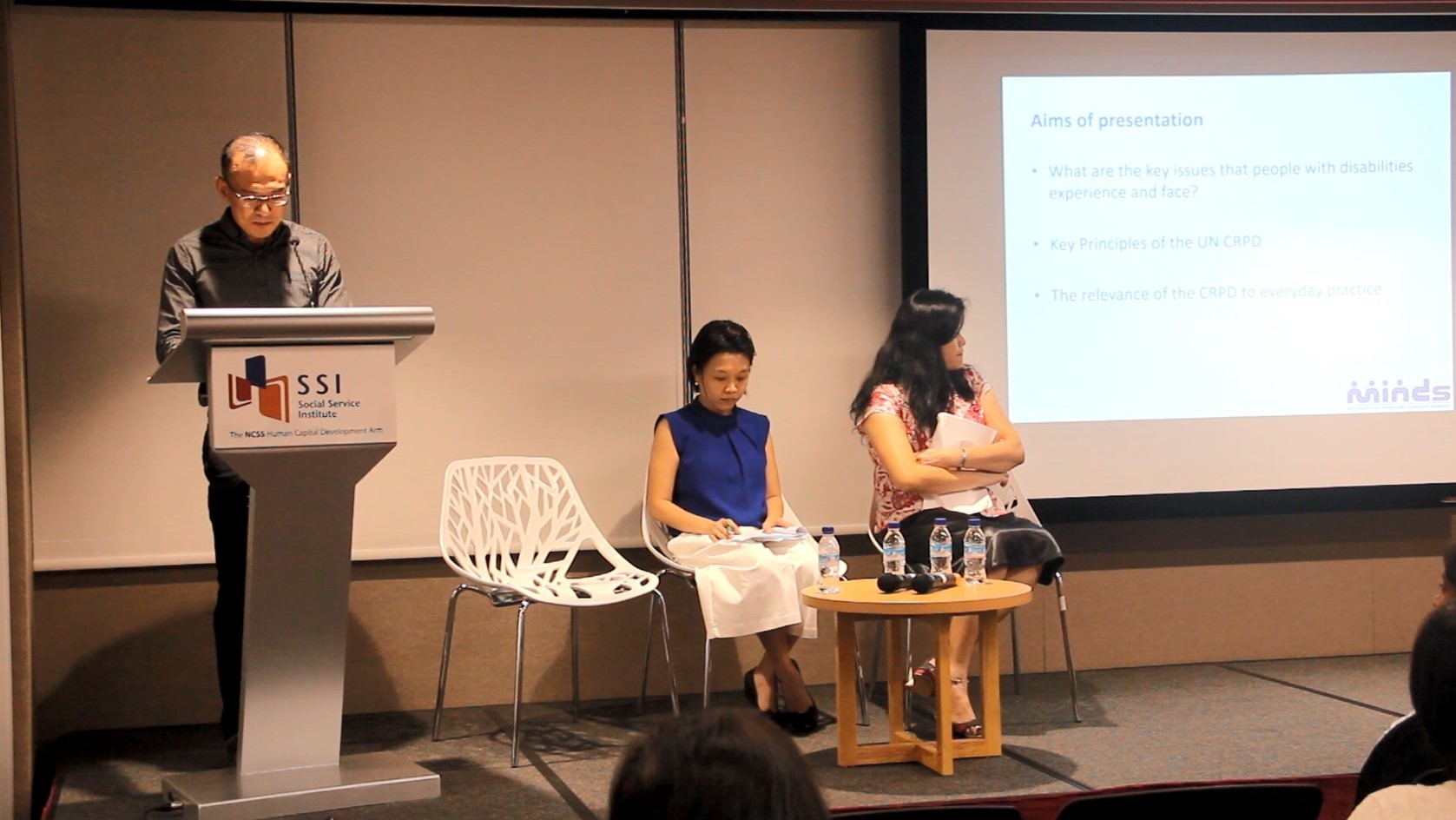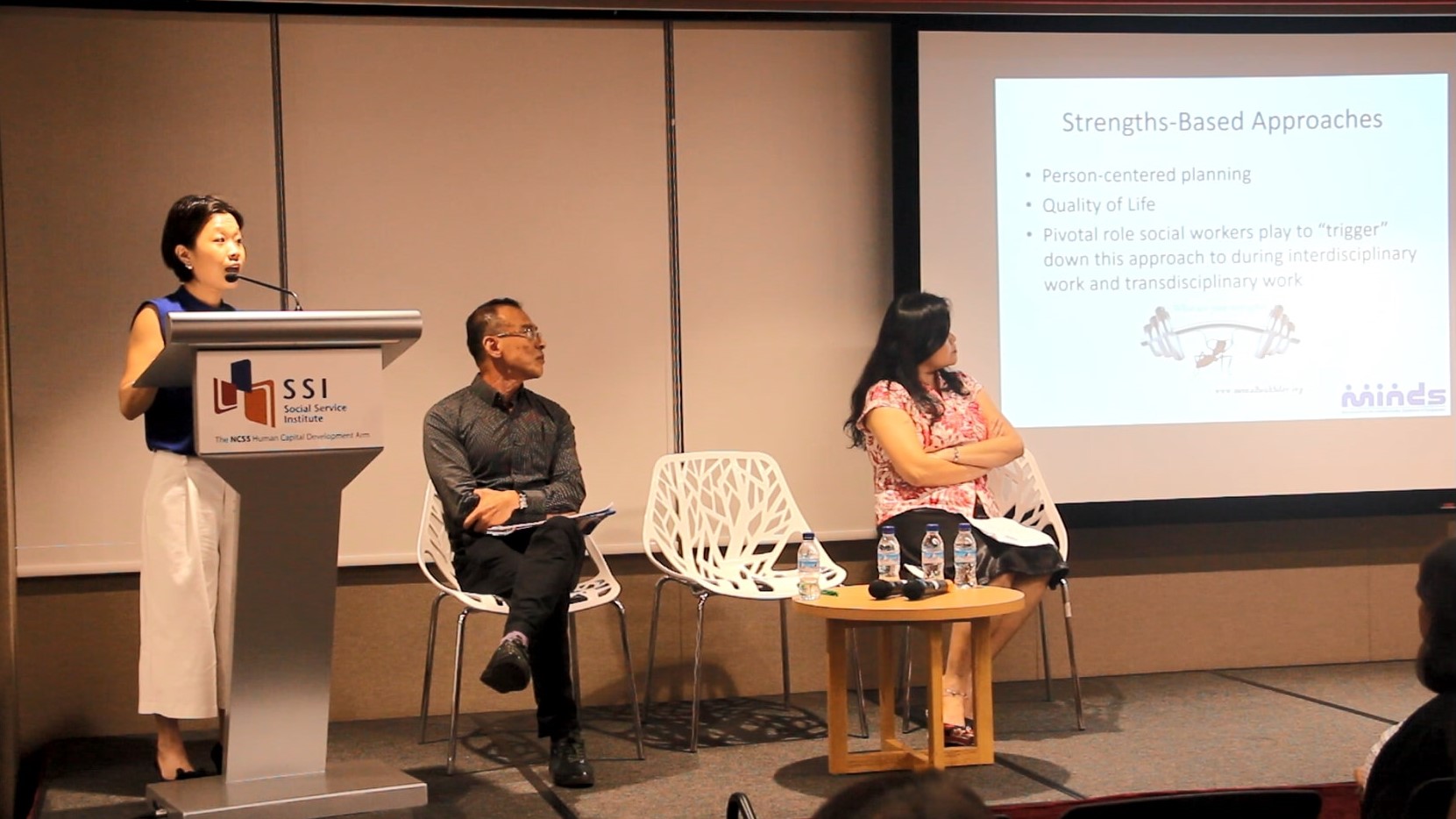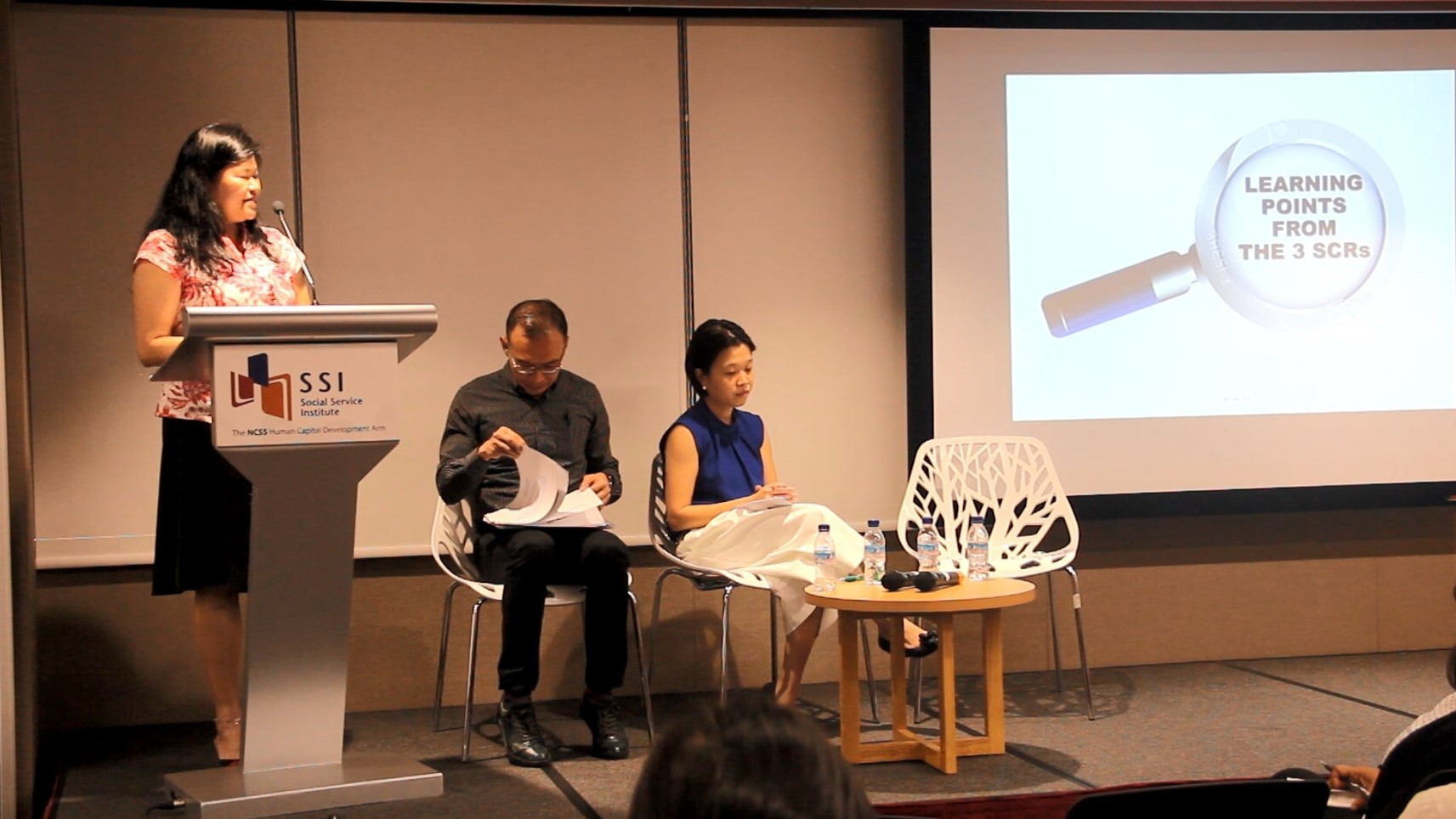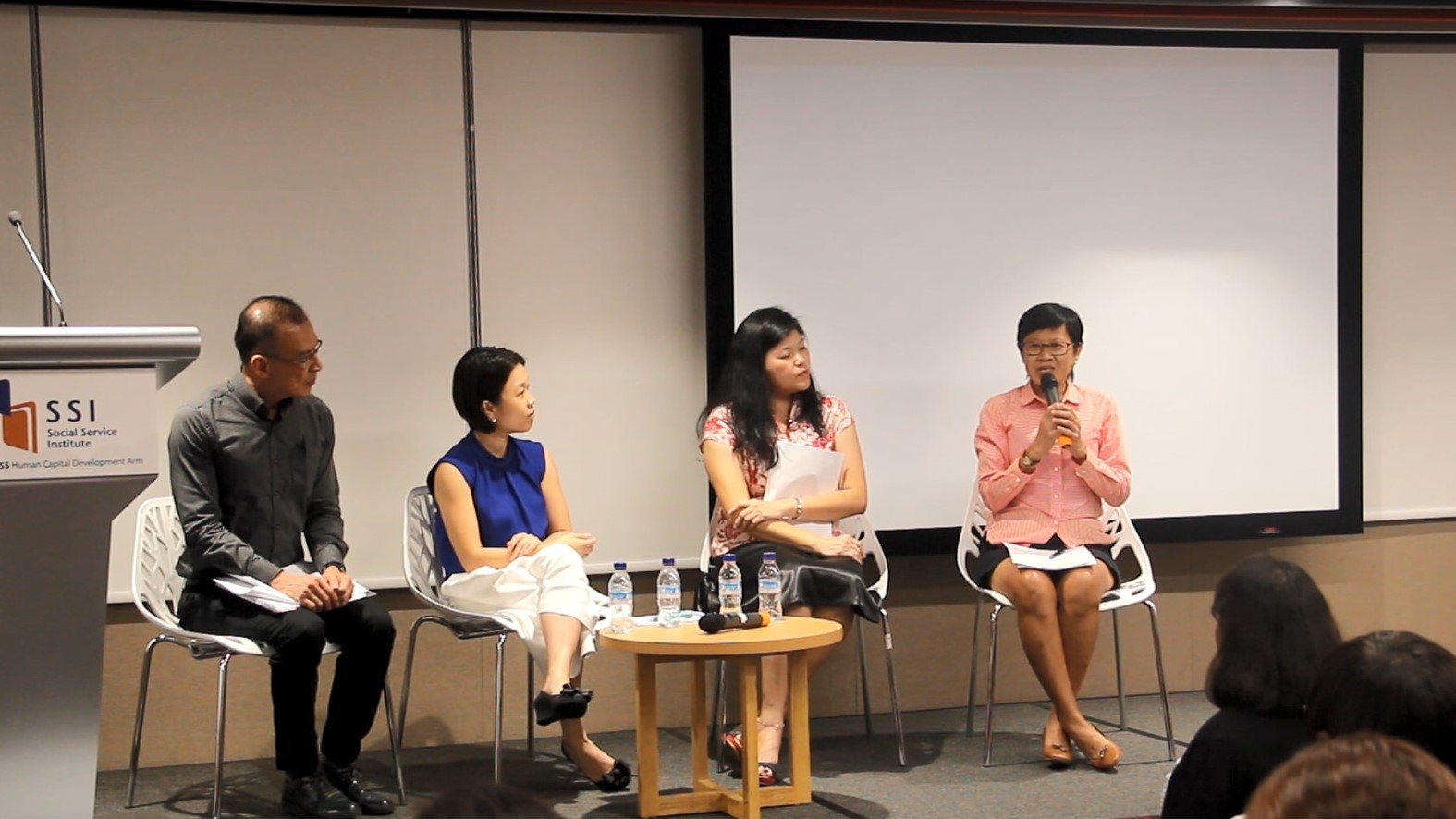Mining Deep, Scaling Heights, Session: Approaches, Principles and Practice in Working With Persons With Disabilities
On 3 February 2017, speakers from the Movement for the Intellectually Disabled (MINDS) and the Ministry of Social and Family Devlopment (MSF) were invited for the session “Approaches, Principles and Practice in Working with Persons with Disabilities”. This session covered the key principles from the UN Convention on the Rights of Persons with Disabilities (UNCRPD) and how these principles apply in everyday practice. UNCRPD is the human rights convention concerning persons with disabilities. It is a list of rights guaranteed to persons with disabilities to improve their access to society, education and employment.
Speakers:
1. Dr Jeffrey Chan – Deputy CEO, MINDS
2. Ms Ong Lay Hoon – Head of Social Work, MINDS
3. Ms Poh Bee Kuang – Senior Assistant Director, MSF
Designations as of 3 February 2017.




Key Aims and Principles of United Nations Convention on the Rights of Persons with Disabilities (UNCRPD)
- To increase the visibility of the disabled in society, and to strengthen society’s connection with Persons with Disabilities (PWDs)
- To add specificity and clarity to assessments – for example, to ensure that children with disabilities have the right to express their views freely on all matters affecting them, their views being given due weight in accordance with their age and maturity, on an equal basis with other children, and to be provided with disability and age-appropriate assistance to realise that right (Article 7 on UNCPRD)
Views of UNCRPD
- Persons with disabilities are individuals with rights and should not be seen as objects of charity and social protection
- UNCRPD gives universal recognition to the dignity of PWDs
How Can We Respect, Protect, and Fulfil the Rights of the Disabled?
- Know that “every person matters”
- Understand that every action has the potential to affect the person in the long-term (e.g. poor initial assessment may lead to implications on the client in the future; he may receive inappropriate treatment, or inadequate assistance as a result of the initial assessment)
- Advocate a change when necessary. This can involve raising an important point that is currently not included in the law or current codes of conduct, which will be helpful in facilitating changes for and meeting the needs of PWDs.
Approaching Persons with Disabilities (PWDs)
- Strengths-based approaches
- Person-centred planning – include the client within discussions and case conferences to find out about their needs, and what they have to say. This would strengthen their sense of self-worth and dignity.
- Family-centred planning – encourage a culture of family support for the PWD
- Person-centred planning – include the client within discussions and case conferences to find out about their needs, and what they have to say. This would strengthen their sense of self-worth and dignity.
Areas of Improvement in Social and Welfare Protection for PWDs:
- Constantly reassess and review previous assessments of cases along the way
- Update information (document significant and relevant developments) for accurate assessment and planning, especially when there is a change in case manager. This is to ensure service continuity and the accessibility of such information for future reference.
- Foster strong communication between agencies to enable effective coordination. This would enhance the problem solving process and create room for expectations and responsibilities to be clarified, as well as for discussion on how information should be transmitted.
WHAT TO READ NEXT
- MDSH Session: The Journey of Youth Outreach in Singapore
- MDSH Session: Reflexive Collaboration Across Disciplines
- MDSH Session: KIDS 0-3: Collaborative Practice in a Trans-Disciplinary Home Visitation Programme
- MDSH Session: Partnering Across Disciplines: Educational Psychology and Social Work
- MDSH Session: More Than Just a House: Perspectives of Journeying With Families With Housing Issues